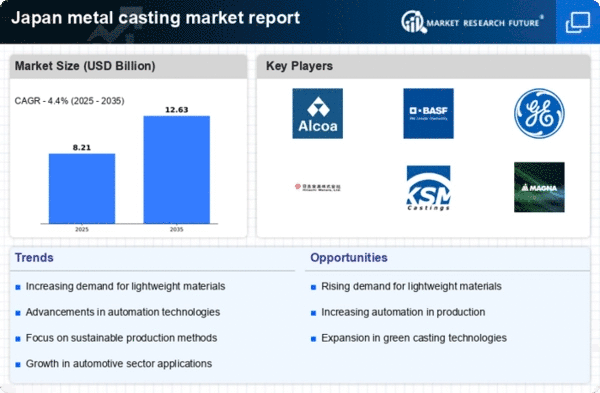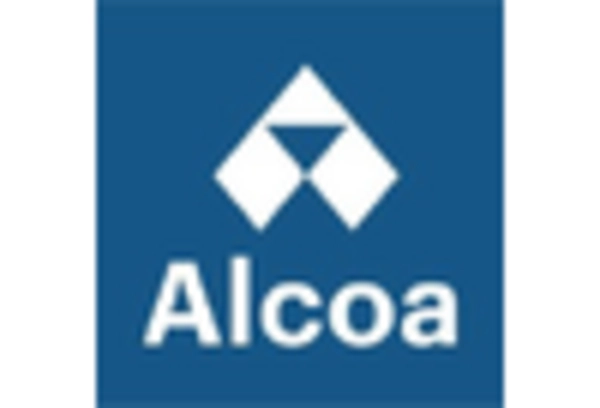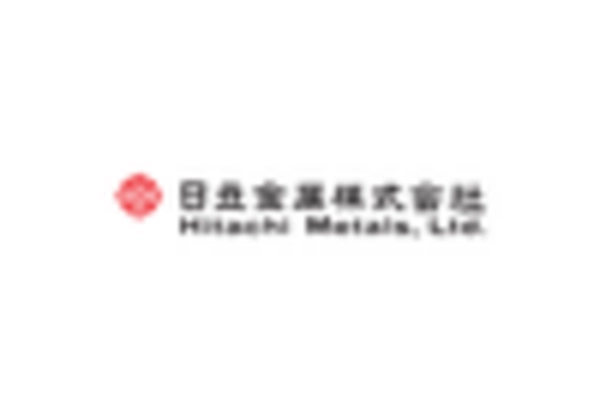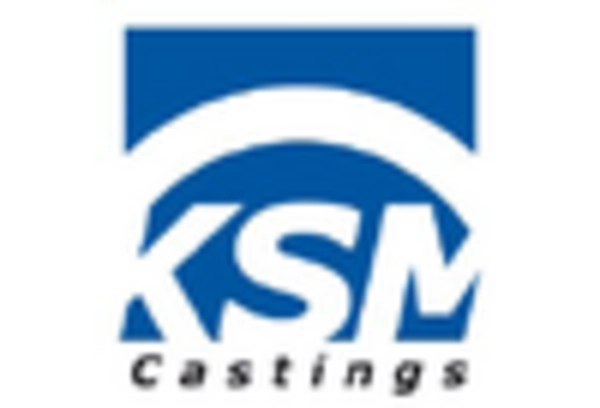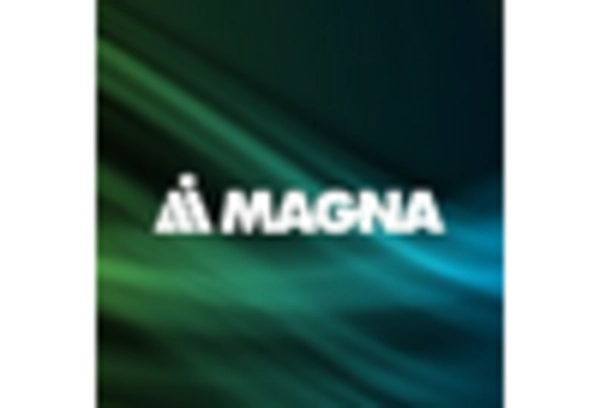The metal casting market in Japan exhibits a dynamic competitive landscape, characterized by a blend of innovation, strategic partnerships, and regional expansion. Key players such as Hitachi Metals (Japan), Alcoa (US), and Magna International (CA) are at the forefront, each adopting distinct strategies to enhance their market positioning. Hitachi Metals (Japan) focuses on technological advancements in casting processes, aiming to improve efficiency and product quality. Alcoa (US), on the other hand, emphasizes sustainability through the development of eco-friendly casting materials, which aligns with global trends towards greener manufacturing practices. Meanwhile, Magna International (CA) is actively pursuing strategic partnerships to bolster its supply chain capabilities, thereby enhancing its competitive edge in the automotive sector.The business tactics employed by these companies reflect a concerted effort to localize manufacturing and optimize supply chains. The market structure appears moderately fragmented, with several players vying for market share while also collaborating on various initiatives. This collective influence of key players fosters a competitive environment where innovation and operational efficiency are paramount, ultimately driving growth in the sector.
In October Hitachi Metals (Japan) announced a significant investment in a new foundry facility aimed at increasing production capacity for high-performance alloys. This strategic move is likely to enhance their ability to meet the growing demand from the aerospace and automotive industries, which are increasingly seeking advanced materials for lightweight and durable components. The establishment of this facility not only signifies Hitachi's commitment to innovation but also positions the company to capitalize on emerging market opportunities.
In September Alcoa (US) unveiled a new line of sustainable aluminum casting products designed to reduce carbon emissions by 30% compared to traditional methods. This initiative underscores Alcoa's strategic focus on sustainability, which is becoming a critical differentiator in the metal casting market. By prioritizing eco-friendly practices, Alcoa not only addresses regulatory pressures but also appeals to environmentally conscious consumers and businesses, potentially expanding its market reach.
In August Magna International (CA) entered into a partnership with a leading technology firm to integrate AI-driven solutions into its casting processes. This collaboration aims to enhance operational efficiency and reduce production costs through predictive maintenance and real-time monitoring. The integration of AI technologies is indicative of a broader trend within the industry, where digital transformation is becoming essential for maintaining competitiveness and meeting evolving customer demands.
As of November the competitive trends within the metal casting market are increasingly defined by digitalization, sustainability, and technological integration. Strategic alliances are playing a pivotal role in shaping the landscape, enabling companies to leverage shared resources and expertise. Looking ahead, it appears that competitive differentiation will increasingly pivot from price-based strategies to a focus on innovation, advanced technology, and supply chain reliability. This shift may redefine the parameters of competition, compelling companies to invest in research and development to stay ahead in a rapidly evolving market.


